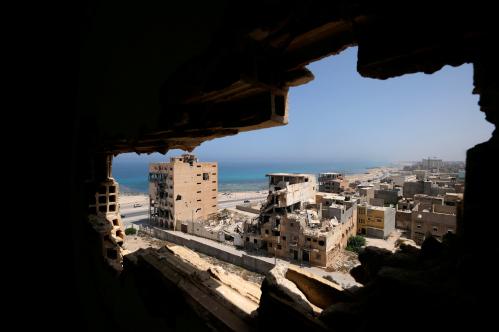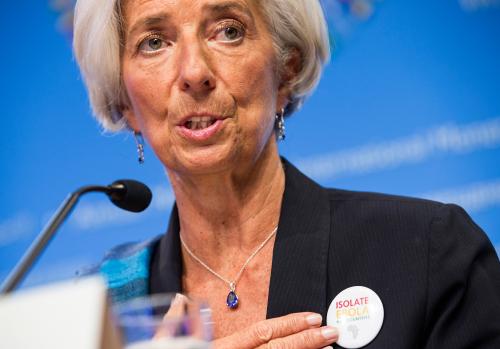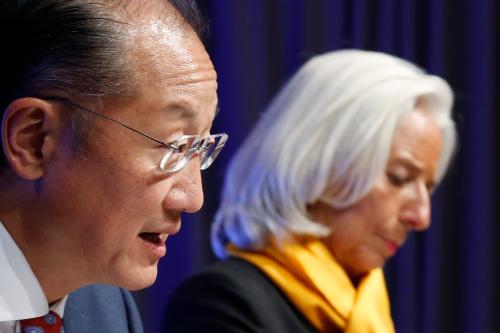IMF Envisages Accelerated Growth for Sub-Saharan Africa
On April 24, the IMF launched its latest Regional Economic Outlook report for sub-Saharan Africa, forecasting a marked rise in economic growth from 4.9 percent last year to 5.5 percent in 2014. This projection reflects several positive developments in the region that contributed to robust growth in 2013, including large investments in infrastructure and natural resources, maturing investments, and improvements in political and security situations (notably in the Democratic Republic of the Congo and Mali).
At the same time, the report also identifies a number of domestic and external risks that may hinder certain countries’ performance moving forward. South Africa in particular, which experienced sluggish growth in 2013, continues to face multiple challenges such as protracted labor strikes by platinum miners, a constrained electricity supply, and weak private investment and consumer confidence. Moreover, capital outflows threaten to further undercut growth not only in South Africa, but in countries with climbing debt levels such as Ghana and Zambia. As investors’ appetite for emerging market debt decreases due to the U.S. Federal Reserve’s reduction in funding for its $85 billion-a-month asset purchase program, developing countries may experience “weaker currencies” and additional “pressure on inflation,” according to Bloomberg. Therefore the outlook for the region—while qualified by these risks—remains cautiously optimistic.
China and the United States Agree on Condemnation of Attacks in South Sudan
Following the escalating violence in South Sudan last week, detailed accounts of the atrocities at Bentiu reveal the ethnic dimension of the attacks in which hundreds of civilians were targeted and killed. Meanwhile, both the United States and China have strongly condemned the recent attacks, creating a rare consensus that will enable discussions over sanctions against key members of the warring parties to proceed in the U.N. Security Council.
In his recent analysis of the conflict, Nonresident Senior Fellow John Mukum Mbaku contends that the country’s pervasive violence stems from the government’s failure to address “mechanisms for all individuals and groups to compete fairly for positions in the political and economic systems” during the state formation process. As a result, he suggests that South Sudan’s leaders face a choice: step aside and allow an interim government to establish a more inclusive system or continue to advance personal agendas through violence and the instrumentalization of ethnicity.
United Nations Security Council Deliberates Sanctions on the Central African Republic
On the other hand, the U.S.’s proposed sanctions against former President Francois Bozizé of the Central African Republic and two other key actors in the conflict have been blocked by China and Russia over administrative and substantive objections. On Tuesday, the U.S. State Department appointed Ambassador W. Stuart Symington to be special representative for the Central African Republic. He will lead the implementation of the U.S. strategy in the CAR, which centers on ending the violence, supporting humanitarian needs and instituting effective systems of governance. However, as violence continues, there is another major obstacle facing local and global leaders: Calls for state partition.
In other news, CAR interfaith leaders Imam Omar Kobine Layama, Archbishop Dieudonné Nzapalainga and Rev. Nicolas Guérékoyame-Gbangou, who engaged in a recent dialogue at Brookings, were listed among TIME Magazine’s 100 Most Influential People for their work “to prevent violence and promote interreligious tolerance.”



Commentary
Africa in the News: IMF Releases Growth Projections, While Security in South Sudan and the CAR Deteriorate
April 25, 2014